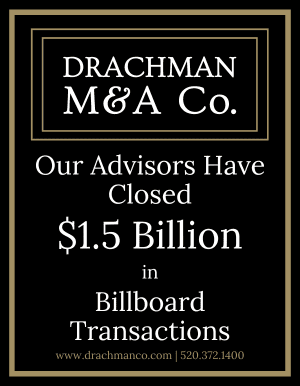A federal court ruling that invalidated Tennessee’s billboard law – If allowed to stand – could jeopardize billboard regulations nationwide, said a legal brief filed by the out of home advertising industry.
In 2017, US District Court Judge Jon P. McCalla struck Tennessee’s billboard law as unconstitutional, citing a 2015 Supreme Court ruling against sign regulation based on content (Reed v. Town of Gilbert, AZ).
The State of Tennessee appealed to the US Sixth Circuit Court of Appeals, a four-state territory that includes Tennessee.
On February 2, the Outdoor Advertising Association of America (OAAA) filed an amicus brief supporting the State’s position that its billboard controls do not violate the First Amendment. State outdoor advertising associations for Kentucky, Michigan, Ohio, and Tennessee joined the industry’s brief.
 Highlights of the industry’s 20-page brief:
Highlights of the industry’s 20-page brief:
- Stakes are high: “The district court’s sweeping interpretation of Reed would also have striking practical consequences by calling into question the continued validity of an enormous swath of regulations across the country. That includes the Highway Beautification Act, which makes on-premises/off-premises distinctions. And it includes state and municipal ordinances in every State in this circuit, and indeed virtually every State in the country.”
- Tennessee’s billboard law does not violate the First Amendment.
- The regulatory distinction between on-premises and off-premises signs, which Judge McCalla cited as a First Amendment issue, is based on location, not sign content.
“In the words of the majority opinion in Reed, on-premises and off-premises signs are not treated differently ‘because of the topic discussed or the idea or message expressed,’” said the industry’s brief.
OAAA is represented by Kannon Shanmugam of the Washington, DC-based litigation firm Williams & Connolly. He also represented OAAA as an intervening party in Scenic America’s legal attack on digital billboards. Scenic America lost in federal court and on appeal; the US Supreme Court declined to take the case last year.
In the Tennessee case, plaintiff William H. Thomas is represented by the Institute for Free Speech, a non-profit advocacy group based in Alexandria, VA.
“A law that permits a sign that says ‘Fireworks for sale here,’ but prohibits an identical sign that reads ‘Support our troops,’ imposes a content-based restriction on speech,” said Institute Director Allen Dickerson in a January 26 press release.
[wpforms id=”9787″]
Paid Advertisement

















